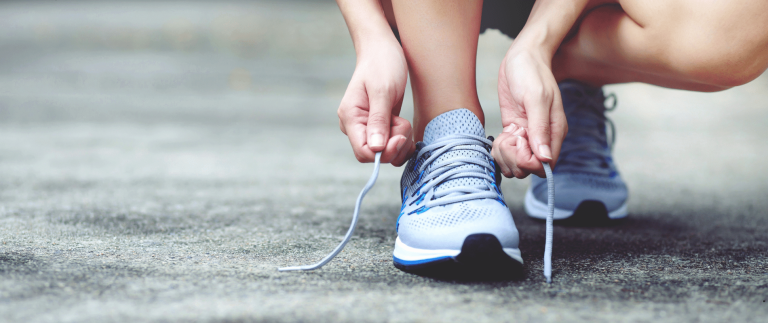Athletes put their bodies through rigorous training and competition to excel in their respective sports. However, with the physical demands of sports also come the risks of injuries, including concussions. While physical rehabilitation is crucial for athletes recovering from sports injuries, the role of therapy in addressing the mental and emotional aspects of recovery is often overlooked. In this blog post, we will explore the importance of therapy for athletes after sports injuries and concussions, and how it can provide them with a mental edge in their journey towards healing and returning to sport. Specialists at Elite Psychology and Wellness provide therapy for athletes suffering from sports injury and concussions in Scottsdale, AZ and surrounding areas.
Understanding Sports Injuries and Concussions
Athletes encounter a spectrum of injuries while engaging in their chosen sports, from the common strains and sprains that momentarily sideline them, to the more critical injuries like fractures and ligament tears which demand extensive recovery periods. Alongside these physical injuries, concussions represent a particularly concerning form of trauma. Occurring from an impact to the head or body, concussions disrupt normal brain function, leading to a variety of symptoms that can significantly hinder an athlete’s performance and overall well-being. These issues underscore the importance of comprehensive therapy that goes beyond the immediate physical healing, addressing the psychological ramifications these injuries impose on athletes. The psychological effects of sports injuries, including concussions, extend well beyond the visible physical symptoms, affecting athletes’ mental health and emotional equilibrium. This complexity of impact makes the need for a holistic approach to recovery clear, one that integrates the management of physical symptoms with strategies to support psychological resilience and emotional stability. Addressing the intricate interplay between mind and body, therapists play a pivotal role in guiding athletes through the multifaceted challenges presented by sports injuries and concussions, ensuring a recovery that encompasses both physical prowess and mental fortitude.
The Role of Therapy in Physical Recovery
Therapy offers an invaluable component to the physical recovery of athletes by addressing the emotional and psychological hurdles that accompany sports injuries. In the journey back to peak physical condition, athletes often grapple with not just the physical pain of injury but also the emotional weight of halted progress, modified training schedules, and the looming uncertainty of return to play. Therapists, understanding the multifaceted nature of recovery, support athletes by equipping them with tools to manage the emotional toll of these challenges. Through various therapeutic techniques, athletes learn to navigate feelings of frustration, setback, and anxiety, transforming these emotions into catalysts for growth and recovery.
Engagement in therapy aids athletes in maintaining a positive outlook during the rehabilitation process, fostering a psychological environment conducive to healing. By identifying and challenging negative thought patterns, therapists help athletes shift their focus from what they currently cannot do to celebrating small victories and progress milestones. This mental shift is crucial, as it sustains motivation and wards off the demoralization that can accompany extended recovery periods.
Moreover, therapy sessions become a space for athletes to process the emotional impact of injury, bolstering their mental resilience. As athletes articulate their fears and frustrations, therapists guide them towards developing a constructive perspective and resilience strategies, ensuring that mental fortitude grows alongside physical strength. This comprehensive approach not only aids in a more holistic recovery but also prepares athletes for future challenges, equipping them with the psychological resilience necessary to face and overcome adversity on and off the field.
Navigating the Psychological Impact of Sports Injuries
When an athlete suffers a sports injury, the path to recovery isn’t just physical—it’s deeply psychological. The emotional aftermath of being sidelined can trigger a complex mix of feelings, from isolation and vulnerability to anger and denial. It’s a critical period where the mental battles can be as daunting as the physical ones. Therapy steps in as a crucial ally, offering strategies to combat the psychological stressors that accompany injuries.
Athletes are often unprepared for the mental toll an injury takes, which can include a profound sense of loss—the loss of identity as an athlete, the loss of progress and the camaraderie of being part of a team. This emotional turmoil can lead to a decline in mental health, making the role of therapy even more paramount. Therapeutic interventions focus on acknowledging these feelings, understanding them, and then moving through them in a constructive manner.
Moreover, the fear of re-injury looms large in the minds of recovering athletes. This anxiety can be paralyzing, affecting their confidence and holding them back from fully engaging in the rehabilitation process or returning to play with their former vigor. Therapy aids in confronting these fears head-on, providing coping mechanisms to manage anxiety and strategies to rebuild confidence gradually.
Therapists also encourage the cultivation of a new or adapted sense of self that encompasses being an athlete but also recognizes the broader aspects of the individual’s identity. This helps in reducing the sense of loss and opens up new avenues for personal growth and development. Through personalized therapeutic approaches, athletes learn to navigate the psychological challenges of their injuries, fostering resilience and a more profound understanding of their strength and potential beyond the field.
Strategies for Mental Resilience and Confidence Building
In developing mental resilience and boosting confidence, therapists introduce athletes to a variety of techniques tailored to their psychological recovery post-injury. Visualization practices stand out as a powerful tool, where athletes mentally rehearse their return to sport, engaging all their senses to create a vivid, positive outcome. This technique not only prepares the mind for action but also reinstates the athlete’s belief in their capabilities. Goal-setting exercises further contribute to this rebuilding process. By establishing short-term, achievable goals, athletes can experience a sense of accomplishment and forward momentum, even when their long-term objectives seem distant. This scaffolding approach ensures that each small victory fuels their confidence and resilience.
Positive self-talk is another critical strategy. Athletes are guided to recognize and alter negative, self-defeating thoughts, replacing them with affirming and empowering messages. This shift in internal dialogue strengthens mental fortitude, enabling athletes to confront setbacks with a constructive mindset. Additionally, therapists may incorporate mindfulness and relaxation techniques to help athletes manage stress and maintain emotional balance. Such practices enhance focus and reduce anxiety, key factors in achieving a successful comeback.
By integrating these strategies, therapy not only aids athletes in regaining physical strength but also rebuilds their self-esteem and confidence. This comprehensive approach ensures that athletes can navigate the recovery process with a resilient and positive outlook, setting the stage for a triumphant return to their sport.
The Importance of Concussion Management
Addressing concussions in athletes demands a dedicated approach that balances cognitive restoration with careful, step-by-step reintroduction to physical activity. Concussions are not merely physical injuries but also involve significant neurological implications that can affect an athlete’s cognitive functions, emotional state, and overall quality of life. Effective concussion therapy hinges on a nuanced understanding of these injuries, emphasizing the critical role of cognitive rehabilitation in the recovery process. This involves strategies aimed at improving cognitive functions that may have been impacted, such as memory, attention, and processing speed.
A cornerstone of managing concussions is the implementation of symptom-based management strategies. This tailored approach ensures that each athlete receives care that specifically addresses the variety of symptoms they may experience, ranging from headaches and dizziness to difficulty concentrating and mood changes. It’s imperative that therapists work in tandem with medical professionals to monitor these symptoms closely, adjusting recovery plans as needed to reflect the athlete’s progress and any emerging challenges.
Integral to concussion management is the adherence to gradual return-to-play (RTP) protocols. These guidelines safeguard the athlete, ensuring that they do not rush back into activities that could exacerbate their condition or lead to further injury. By methodically increasing physical and cognitive activities, under the careful guidance of therapy professionals, athletes can make a safer transition back to their sport, all while minimizing the risk of recurrent concussions and promoting long-term health and performance.
Tailoring Therapy to the Individual Athlete
The uniqueness of each athlete’s journey through injury and recovery underscores the need for personalized therapy sessions. Therapists collaborate intimately with athletes, delving into their personal aspirations, apprehensions, and obstacles, to customize therapeutic interventions. This bespoke approach ensures that strategies and techniques are relevant and resonate deeply with the athlete’s personal experience. Through this individualized collaboration, athletes gain access to targeted support that addresses their specific psychological landscape, fostering a more effective and meaningful path to recovery. Adapting therapeutic methods to align with each athlete’s unique situation allows for a nuanced recovery process that not only targets physical healing but also nurtures mental and emotional well-being, laying a solid foundation for overcoming future challenges and achieving peak performance.




